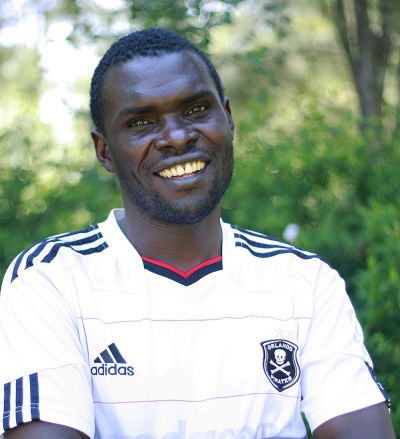MSF’s medical team leader in Monguno, northeast Nigeria, is helping displaced communities caught on the frontlines of the conflict between Boko Haram and the military

“Most babies in Monguno in Nigeria’s Borno State were dead or dying in September,” says Dr Dancan Owino. The Kenyan worked as a medical team leader to set up a Doctors Without Borders (MSF) hospital in the town, 140km north of the state capital Maiduguri, which is a frontline in the battle between Boko Haram and the Nigerian military.
The conflict in Nigeria’s northeast, which started in 2009, escalated in 2014 when Boko Haram took control of large swathes of territory. In 2015, the military struck back, reclaiming cities and villages. Fighting between the two sides has since left millions displaced and living in temporary camps, while a serious malnutrition crisis is devastating communities caught up in the fallout.
“The nutrition crisis is intense,” says Dancan. “A woman comes to you and says she’s lost five kids already, so if she loses one more she won’t even cry. But as MSF it really hurts when you see a child that can be helped, but who dies.”
“In the first two weeks that I worked there in September, we lost 50% of children under 5-years-old we saw,” he says. Two months later, the situation in Monguno has stabilised and is slowly improving since people now have medicines, health services and steady access to treatment for malnutrition in children.
MSF has had a permanent presence in Maiduguri since the crisis escalated in 2014. In Monguno, until MSF opened its inpatient secondary care facility this year only mobile day clinics were present to help the estimated 70,000 people living in camps for internally displaced people (IDPs).
The majority of cases seen by the MSF team relate to measles, malaria, and severe acute malnutrition in children – which together create a perfect storm that can lead to early death in young children. The facility also treats women requiring maternal healthcare services, but due to the lack of alternative secondary care in Monguno, MSF sees patients with all possible health concerns. Some people walk for up to seven hours just to reach the hospital, Dancan says.
Monguno – which used to be home to some 150,000 people – now houses nine IDP camps, is surrounded by trenches for security reasons, has a daily 18:00 to 09:00 curfew in place, and extremely restricted communications. Because of ongoing instability and violence, only a small portion of the area is accessible – even to the military, Dancan says. It is suspected that Boko Haram controls the rest. “No one knows what is happening there. Even those patients who are just 5km away from us cannot reach us because of the security challenges.”
Solidarity
The insecurity puts a strain on MSF’s work in Monguno, he says, explaining that it is difficult to work inside IDP camps. It is a challenge recruiting national staff, who are deterred by the increased security risks in this besieged part of Borno State, and it is an even greater challenge getting medical supplies into a town largely cut off from everywhere else.
Despite these difficulties however, he believes in staying positive and in the impact of MSF’s medical work has for people in crisis.
He expresses solidarity with the people he is able to treat, saying: “I do the work I do because I want people in unfortunate situations in the world to know they have people on their side.”
“We had these twins we treated who were just two weeks old,” he recalls. “Their mother was killed by when Boko Haram fighters raided her village, but these two survived. They were brought to us and stayed for a month.”
“In the end, they survived. We found their two grandmothers – from both the mother’s and father’s side – who stayed at the hospital with them, and when they were well enough, they took them home.”
“When you see one person getting out of this, that’s just good enough. It’s difficult, but if you have passion, it’s worth it,” Dancan says.
Find out more about MSF's work in Nigeria.